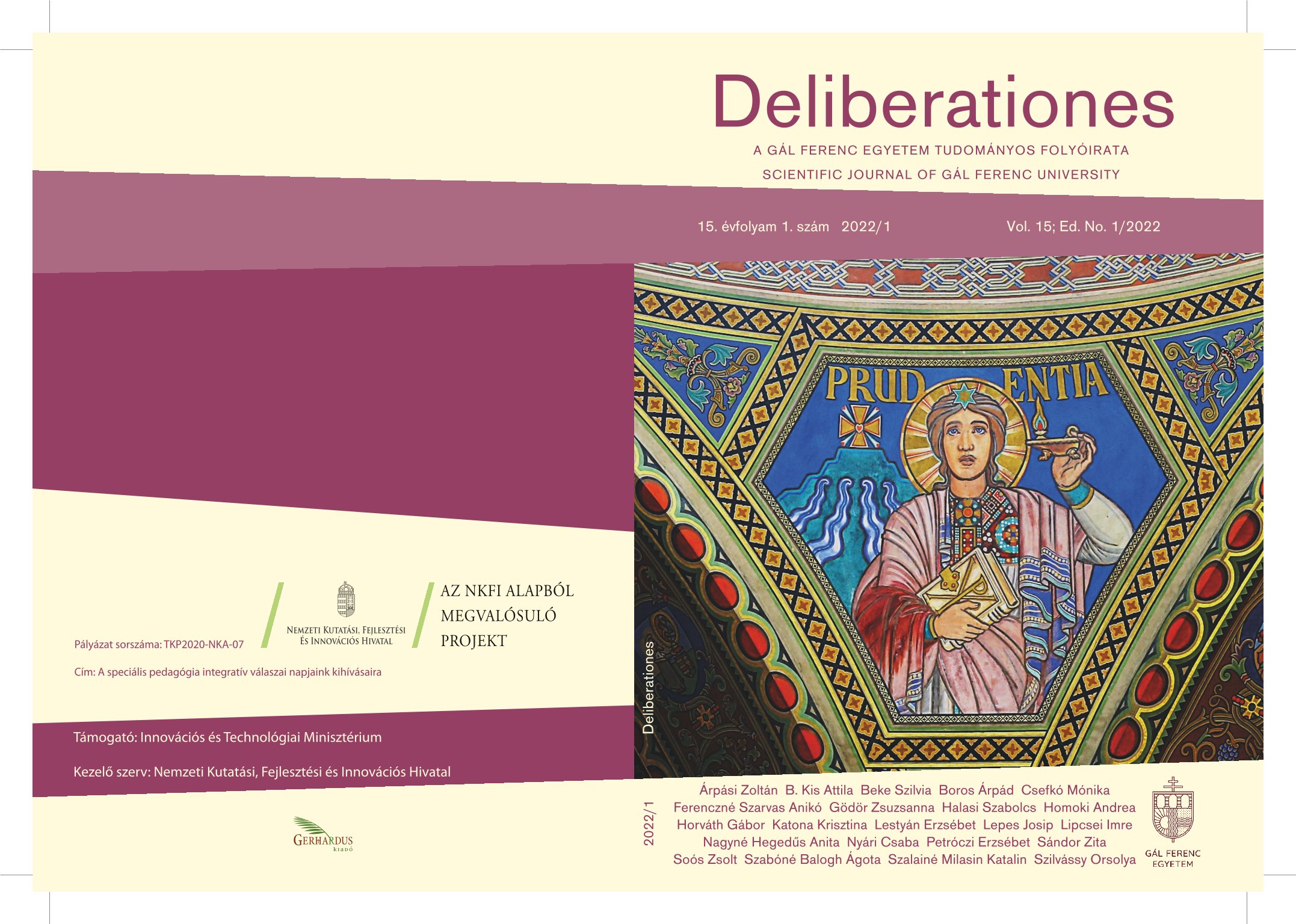Abstract
In this paper I discuss the issue of special pedagogical tools for social sensitivity education in a broader context. After clarifying the basic concepts related to the topic, the relationship between social values, norms and social competence, the role and the task of educational institutions in the development of social competence and social sensitivity as a component of social competence are discussed. Basically, I will build on the views of Carl Rogers to describe the principles of educators/facilitators that promote the positive development of personality. The paper concludes with a description of the SEL (Social and Emotional Learning) method and the Inclusion Index as the most important features and the effects and benefits of using this method and tool at the individual and societal level. The conclusion of the paper is that the application of the SEL method and the Inclusion Index in schools can be effective in helping children to develop their human and pro-social values and social competences, and can also lead to a more inclusive educational system and thus to a more inclusive society.
References
Aronson, E. (2008). A társas lény. Osiris.
Booth, T. & Ainscow, M. (2015). Inklúziós index: a tanulás és részvétel támogatása az iskolákban. Educatio Nonprofit Kft.
Csefkó, M. (2021). A szociális érzékenységre nevelés az Inklúziós index intézményfejlesztési szemlélete mentén. Gál Ferenc Egyetem.
Giddens, A. (2008). Szociológia. Osiris.
Homoki, A. (2014). Az iskola és a gyermekvédelmi intézmények rezilienciát elősegítő hatásai. In. Ceglédi, T., Gál, A., Nagy, Z. (szerk.): Határtalan oktatáskutatás. Tanulmányok a 75 éves Kozma Tamás tiszteletére. (45-56). Debreceni Egyetem Felsőoktatási Kutató és Fejlesztő Központ (CHERD-Hungary).
Kasik, L. (2007). A szociális kompetencia fejlesztésének elmélete és gyakorlata. Iskolakultúra, 17. (11-12), 21-37.
Lestyán, E. (2021). A szociális érzékenységre nevelés speciális pedagógiai eszközei. Gál Ferenc Egyetem.
Moos, R. (1979). Evaluating educational environments: Methods, procedures, findings and policy implications. Jossey Bass.
Nagy, J. (2010). Új pedagógiai kultúra. Mozaik Kiadó.
Nagyné, S. Cs. (2011). Inkúzív iskolák fejlesztése. Doktori (PhD) disszertáció. ELTE PPK, Neveléstudományi Doktori Iskola.
Papp, G. (2012). Az integráció, inklúzió fogalmak tartalmi elemzése gyógypedagógiai megközelítésben, nemzetközi és magyar színtéren. Gyógypedagógiai szemle, 40 (4), 295-304.
Petróczi, E. (2021). Szociális érzékenységre nevelés speciális pedagógiai eszközei. Gál Ferenc Egyetem.
Reitz, S. (2012). Improving social competence via E-learning? The example of human rights education. Lang, Peter GmbH, Internationaler Verlag der Wissenschaften.
Réthy, E. (2002). A speciális szükségletű gyermekek nevelése, oktatása Európában. Az integráció és inklúzió elméleti és gyakorlati kérdései. Magyar Pedagógia, 102. (3), 281–300.
Rogers, C. (2010). Valakivé válni. A személyiség születése. EDGE 2000 Kiadó (Eredeti mű: Rogers, C. (1961). On becoming a person: A therapist's view of psychotherapy. Constable.)
Soós, Zs. (2005). A szociális munka alapjai. Comenius Bt.
Soós, Zs. (2018). Szociális esetmunka. Debreceni Egyetemi Kiadó.
Szabó, J., Sipos, M. (2018). Klasszikus módszerek modern megközelítésben. Érzelmek felismerésének tréningje biblioterápiás technikák alkalmazásával. Lege Artis Medicinae, 28 (1-2), 55-65.
Szabó, L. (2000). Szociális esetmunka. Elméleti alapvetés. Wesley János Lelkészképző Főiskola.
Tunstall, D. F. (1994). Social Competence Needsin Young Children: What the Research Says.
Paper presented at the Association for Chilhood Education.
Zsolnai, A. (2020): A szociális kompetencia fejlődése és fejlesztési lehetőségei gyermekkorban. Doktori értekezés. Magyar Tudományos Akadémia.
Zsolnai, A., Rácz, A., Rácz, K. (2015): Szociális és érzelmi tanulás az iskolában. Iskolakultúra, 25 (10), 59-68.
